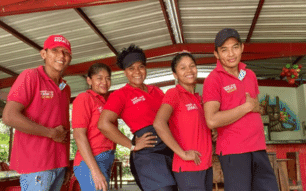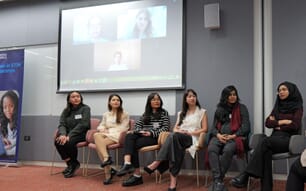What inspired you to start in aquaculture?
I wasn’t so much inspired to work in aquaculture as dragged into it through circumstance! We moved to the west coast of Scotland in 1988 because my marine-biologist husband wanted to be a pioneer mussel farmer, and I left a much-loved writing and PR job behind in London. Before the days of internet and with three small children to look after, my former life was lost to me and I looked around locally to see what I could get involved in.
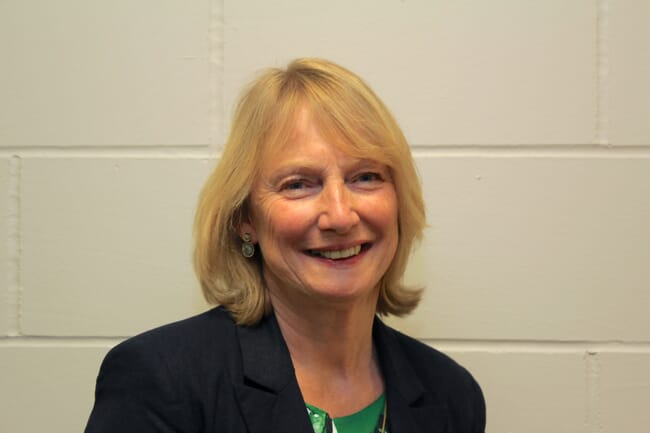
I was interested in the area’s fledgling aquaculture industry – which was producing salmon, trout, turbot, halibut and shellfish – and realised that little was known about in the wider world, so I fired off a few enquiries to newspapers and magazines and started landing commissions. It was a steep learning curve, but I found every aspect of the industry fascinating, and have since been lucky enough to travel the world writing about it. I don’t think there are many farmed species that I haven’t seen at source, and each year there are new innovations, new issues and new ideas to write about.
I also began a freelance communications business, working with local and national seafood companies, and organisations including Seafood Scotland and the Association of Scottish Shellfish Growers (ASSG). As ASSG marketing coordinator for 10 years, I raised awareness of Scottish mussels, oysters and scallops amongst consumers and the media, at a time when they were relatively new to market and consumption was low. I organised the ASSG annual conference for a number of years, and initiated the Best Scottish Shellfish competition, which is still keenly fought over.
I worked with Loch Fyne Oysters for eight years and remember some fun trips around Europe with the legendary John Noble, promoting their products.
In another role as Chair of the North Sea Women in Fisheries Network, I visited coastal communities in Europe, many of whom rely heavily on shellfish farming, and I admired their fortitude and perseverance in working at the sharp end, under difficult conditions. I also organised conferences to provide a platform for the women to tell their stories and share experiences.
I am not at all keen on getting my own hands wet, so over the 25 years in which we farmed mussels in Loch Etive, my role was very much shore-based. Just occasionally I visited the farm to check they were doing it right! I remember one night in the early days when we were still packing mussels into 1kg net bags at midnight, on a trailer outside the house, and vowed “Never again”!
Four years ago we moved to Devon to set up the UK’s first fully offshore mussel farm, which is a major undertaking and I was thrust once again into a new role, managing all the onshore aspects of the new business. This involved everything from accounts to HR and communications, and from educational projects to crisis management, and from marketing to corporate schmoozing. Thankfully, this year, the business has grown enough for me to pass some of these roles over to more capable hands, and I have been able to find more time for my first love, which is writing.
What’s the most interesting, inspirational experience you’ve had working in aquaculture to date?
That has to be creating and overseeing the Seafood in Schools project in Scotland, which ran for five years, and culminated in two teams of high-school students opening the European Aquaculture Society conference in Edinburgh a couple of years ago. They took part in a cook-off and presented videos of their journey of discovery finding out what Scottish aquaculture is all about. Compèring this event was both nerve-racking and enjoyable!
What’s the most unusual experience you’ve had in aquaculture?
Receiving an invitation to visit Eritrea to write about their newly created fisheries and aquaculture industries – the latter involving the production of tilapia, shrimp and salicornia in a vast integrated system adjacent to the mangroves. Sadly, it didn’t survive the ongoing political upheaval in the region.
How important are sustainability concerns to you and how do you address them in your work?
Proving that a business operates in a responsible and sustainable manner is a prerequisite to entering markets these days. We are highly aware of the need to demonstrate our green credentials on the offshore farm and put a comprehensive environmental monitoring programme in place before deploying any equipment. This is ongoing, and we currently sponsor a PhD student to study the wider environmental and social benefits of the farm. We have prevaricated for years about which certification standard to go for, but the final say will go to a major new customer we have just started working with, who is weighing up the advantages of the Aquaculture Stewardship Council (ASC) vs Best Aquaculture Practice (BAP) certification.
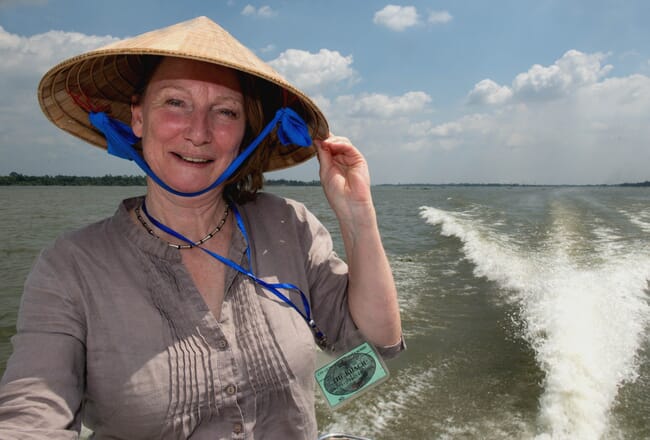
What new technical or product innovation do you think has the greatest potential to change aquaculture?
I have worked with feed companies, and written a lot about fish feed and the need for alternative ingredients to reduce the amount of fishmeal and fish oil we use in fish aquaculture, and I believe that innovations in this field have the greatest potential to revolutionise the industry.
Are there any individuals or organisations in aquaculture who you’ve found particularly inspirational?
One of the people I find most inspiring is my husband, John, who refused to be beaten when no one would believe that he could farm mussels offshore. It has taken him years to start achieving his lifelong dream and there is still a way to go yet.
I am also inspired by Dr Pearse Lyons, founder of Alltech Inc, an American global animal health and nutrition company with a strong interest in aquaculture. An innovator and born leader, who is renowned for nurturing new business and scientific talent, he recently announced that he would solve the sea lice issue within a year. I secured an interview with him and could have listened to this fascinating man all night.
Have you faced any particular challenges as a woman in aquaculture?
In the early days there were very few women writing about aquaculture and some interviewees could be dismissive, but I studied hard to ensure I knew my subject and soon found myself taken seriously.
How are women addressing inequalities in aquaculture in your region and have you seen the opportunities improve in recent years?’
There are few women involved in mussel farming who work at sea, although I know of several who work with oysters. We have several female employees, although none of them currently goes to sea on a regular basis, as the hours are less attractive to those juggling childcare arrangements.
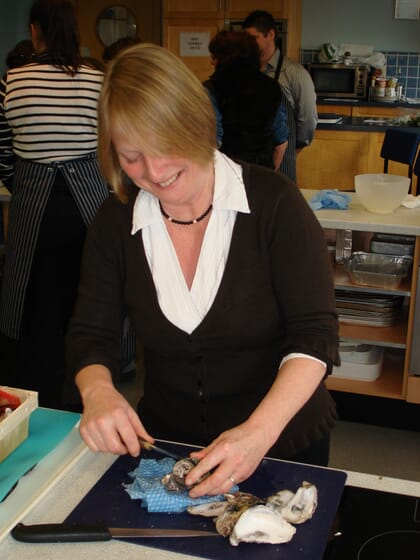
What advice would you give to women looking to start a career in the aquaculture sector?
The aquaculture sector is diverse and has a lot to offer women at all levels, from science to farming, and from sales to business management. The key to success is to work and study hard, be enthusiastic and professional and be willing to go the extra mile to achieve results. A passion for the subject is also a necessity. There is no reason why women cannot do any of the jobs that are currently mostly undertaken by men and it is encouraging to see more and more women working in this field.
What has been the aquaculture industry’s greatest accomplishment in recent years?
Developing the techniques and knowhow to farm fish on a large scale is a tremendous achievement, especially when you think that ancient civilisations from the Egyptians to the Romans knew how to do it on a small scale many millennia ago. It is only in the past half century that the impetus has been generated to learn how to farm more species at sea and on land, and rapid advances in science, technology and materials have been key to achieving this.
What outstanding challenge would you most like to solve?
Work on genomics is advancing very quickly and it has great potential to help solve disease and parasite issues. In particular, I would like to see it solve the sea lice challenge, which would remove one of the most important bones of contention from the anti-fish-farming lobby’s long list.


